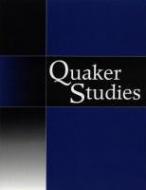
Abstract
Early Quakers rarely relied on ancient or modern (seventeenth century) prophecy to authenticate their faith. The reason for this was their emphasis on inner revelation. After the Nayler episode Quakers slowly began to turn their energies toward making necessary theological and institutional adjustments that would better enable the movement to control the radical individualism of the inner light. One area that has not received much attention is how attitudes toward prophecy were changing. This paper focuses on one distinctive Quaker pamphlet which appeared in 1664. Francis Ellington's A Christian Information Conce��ning These Last Times demonstrates how one Quaker was strugglmg to understand the reasons for the long-delayed consummation of the Lamb's War. In the face of fierce persecution and the difficult conditions for Quakers during the Restoration Ellington searched back beyond Fox for new expressions of prophetic authentication and encouragement. The use of specific prophecy, now seen as coming true, was rare in Quaker writing. Ellington's voice may have been a distinctive one among Quakers of the time but his tendency to incorporate a pacifist element into a militant apocalyptic rhetoric was not unusual in Quaker writing until the 1680s.
Recommended Citation
Bailey, Richard G.
(2014)
"Francis Ellington's use of Prophecy to Explain the Appearance, Deliverance, and Apocalyptic Role of Quakers in the Last Days,"
Quaker Studies: Vol. 3:
Iss.
2, Article 2.
Available at:
https://digitalcommons.georgefox.edu/quakerstudies/vol3/iss2/2
